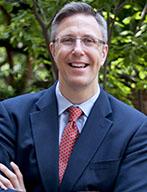
The Black Box Society
With author Frank Pasquale. Moderated by Jonathan Zittrain.
Tuesday, April 7, 2015 at 12:00 pm
Does the increasing velocity, variety, and volume of data make regulators' jobs harder or easier? Some say we are entering a "golden age of surveillance," enabling perfect enforcement of laws. But Frank Pasquale's book "The Black Box Society" argues that, at least in areas like privacy, antitrust, and financial regulation, big data can also enable obfuscation, stonewalling, and even fraud.
About Frank
Frank Pasquale’s research addresses the challenges posed to information law by rapidly changing technology, particularly in the health care, internet, and finance industries. He is a member of the NSF-funded Council for Big Data, Ethics, and Society, and an Affiliate Fellow of Yale Law School’s Information Society Project. He frequently presents on the ethical, legal, and social implications of information technology for attorneys, physicians, and other health professionals. His book The Black Box Society: The Secret Algorithms that Control Money and Information (Harvard University Press, 2015) develops a social theory of reputation, search, and finance.
Pasquale has been a Visiting Fellow at Princeton’s Center for Information Technology, and a Visiting Professor at Yale Law School and Cardozo Law School. He was a Marshall Scholar at Oxford University. He has testified before the Judiciary Committee of the House of Representatives, appearing with the General Counsels of Google, Microsoft, and Yahoo. He has also presented before a Department of Health & Human Services/Federal Trade Commission Roundtable and panels of the National Academy of Sciences. He served on an American Academy of Arts and Sciences working group on the future of mobile health (mHealth) regulation. He has received a commission from Triple Canopy to write and present on the political economy of automation.
Pasquale serves on the Advisory Boards of the Data Competition Institute, Patient Privacy Rights and the Electronic Privacy Information Center. He is is on the editorial boards of the Journal of Legal Education and the Oxford Handbooks Online in Law. He has served on the executive board of the Health Law Section of the American Association of Law Schools (AALS), and has served as chair of the AALS section on Privacy and Defamation. He has been quoted in the Financial Times, New York Times, Economist, CNN, and many other media outlets.
About Jonathan
Jonathan Zittrain is the George Bemis Professor of Law at Harvard Law School and the Harvard Kennedy School of Government, Professor of Computer Science at the Harvard School of Engineering and Applied Sciences, Vice Dean for Library and Information Resources at the Harvard Law School Library, and co-founder of the Berkman Center for Internet & Society. His research interests include battles for control of digital property and content, cryptography, electronic privacy, the roles of intermediaries within Internet architecture, human computing, and the useful and unobtrusive deployment of technology in education.
He performed the first large-scale tests of Internet filtering in China and Saudi Arabia, and as part of the OpenNet Initiative co-edited a series of studies of Internet filtering by national governments: Access Denied: The Practice and Policy of Global Internet Filtering; Access Controlled: The Shaping of Power, Rights, and Rule in Cyberspace; and Access Contested: Security, Identity, and Resistance in Asian Cyberspace.
He is a member of the Board of Directors of the Electronic Frontier Foundation and the Board of Advisors for Scientific American. He has served as a Trustee of the Internet Society and as a Forum Fellow of the World Economic Forum, which named him a Young Global Leader. He was a Distinguished Scholar-in-Residence at the Federal Communications Commission, and previously chaired the FCC’s Open Internet Advisory Committee. His book The Future of the Internet -- And How to Stop Itpredicted the end of general purpose client computing and the corresponding rise of new gatekeepers. That and other works may be found at <http://www.jz.org>.